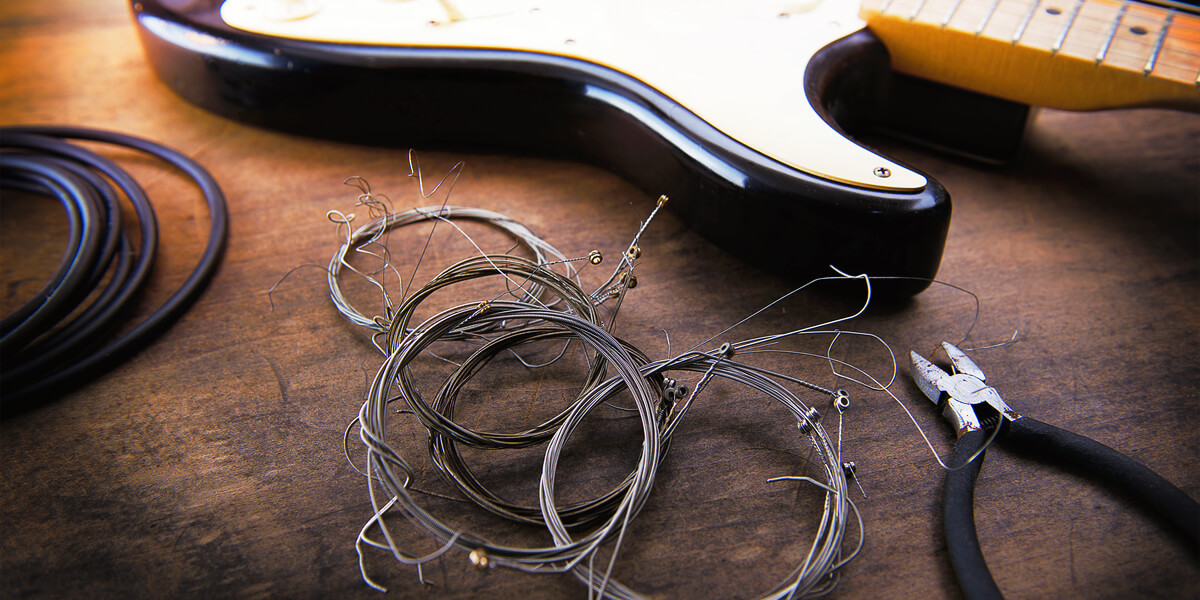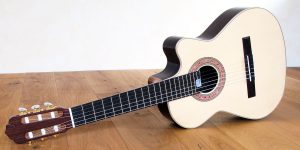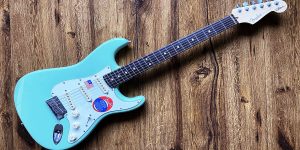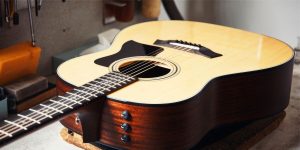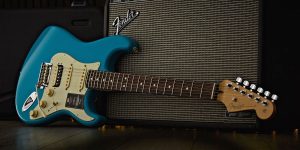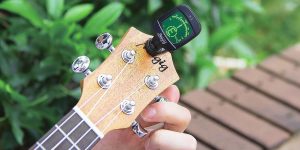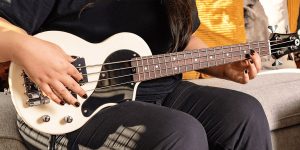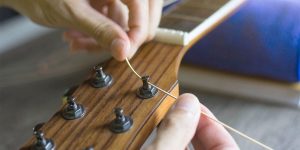As a fellow guitarist, I know just how precious our electric guitars can be to us. They’re not just instruments; they’re an extension of our creativity, passion, and, often, our personality. That’s why keeping them in tip-top shape through regular electric guitar maintenance is crucial.
In this article, I’ll cover some essential tips that will help you take care of your electric guitar, both for short- and long-term care. So let’s not waste time and go on this fascinating virtual journey, at the end of which you will have mastered the technique of caring for your favorite instrument to perfection.
Short-term maintenance: the essentials
As guitar players, we all want our instruments to sound and play their best at all times. One of the keys to achieving this is through regular short-term maintenance of our “musical friends.”. By incorporating these simple yet effective tasks into your weekly or monthly routine, you’ll be able to prevent potential issues down the line.
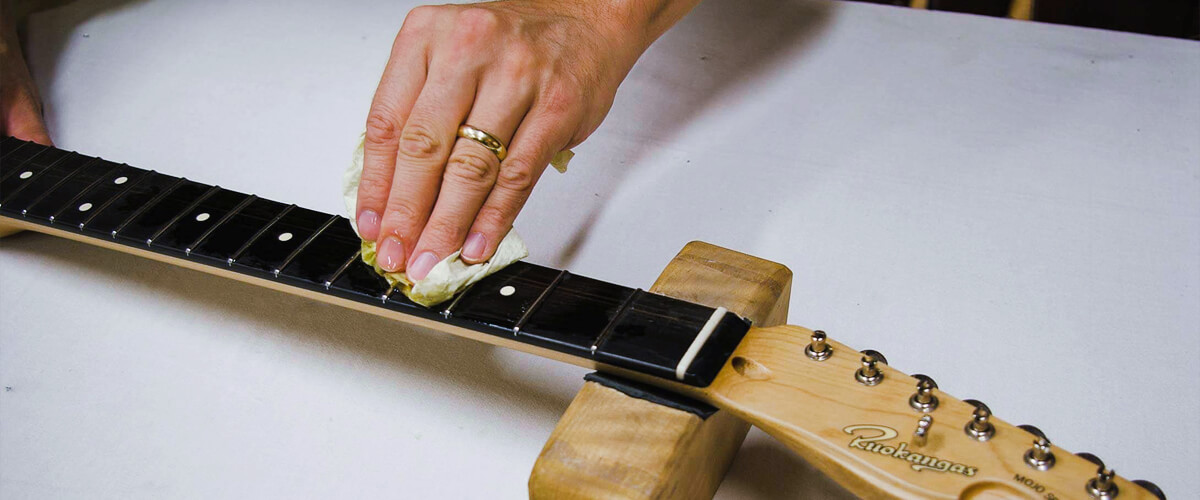
Weekly/monthly maintenance checklist
Here’s my handy checklist of weekly/monthly maintenance tasks to keep an electric guitar in peak condition:
- Check strings. Inspect your strings for signs of wear, rust, or damage, and replace them regularly to maintain optimal tone and playability.
- Inspect hardware. Give your guitar’s hardware, including tuners, bridge, and strap buttons, a quick once-over to make sure everything is tight and functioning properly.
- Fretboard care. Clean and condition the fretboard every few months to keep it smooth and comfortable for playing.
- Electronics maintenance. Clean and check your instrument’s electronics, including pots, switches, and jacks, to prevent crackling noises or signal loss.
Tuning and string breakage tips
The following practices will help maintain your instrument’s sound quality, prevent string breakage, and prolong its lifespan:
- Stretch your strings. When you put on new strings, gently stretch them by pulling them away from the fretboard and then returning. This will help stabilize tuning and minimize string breakage.
- Tune regularly. Check and adjust your instrument’s tuning every time you play to ensure optimal performance. Invest in a reliable tuner to ensure improved intonation.
- Lubricate the nut and saddles. Apply a small amount of guitar lubricant to the nut and saddles to reduce friction and minimize string breakage.
Humidity control
While electric guitars are less susceptible to humidity changes than acoustic ones, keep your instrument in a room with a relative humidity level of 45-55%. You can use a hygrometer and room humidifier/dehumidifier to maintain proper levels.
Long term maintenance keep your guitar rocking for years
To take care of a guitar, it’s critical to not only perform short-term maintenance but also plan for long-term care. By following my guidelines, you’ll be able to address potential issues before they become bigger problems and maintain the value of your instrument.
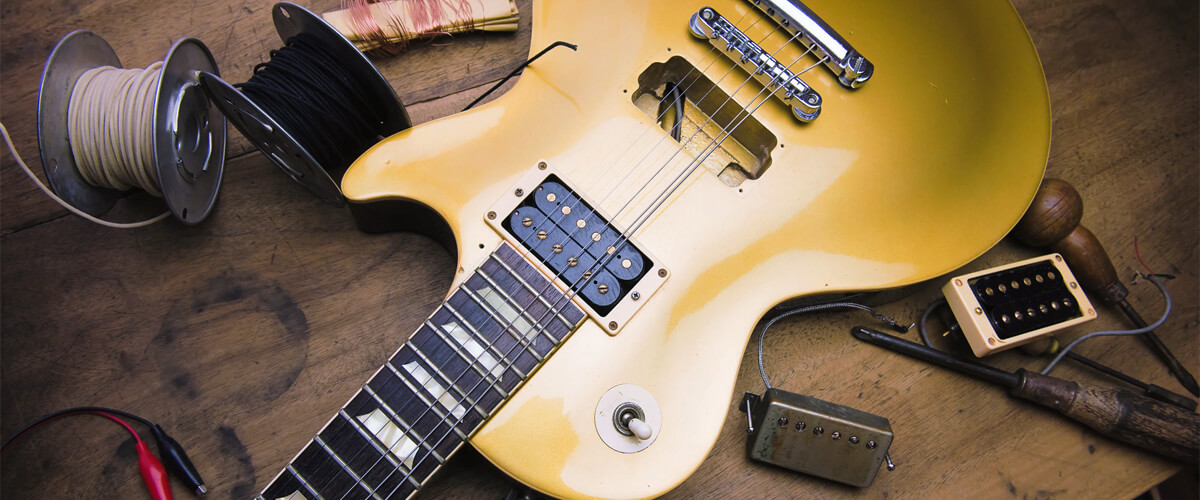
Annual maintenance checklist
Here’s a checklist of annual maintenance tasks for your instrument:
- Inspect wiring and electronics. Check the wiring, solder joints, and electronic components for any signs of wear or damage. If needed, have a qualified technician perform repairs.
- Truss rod adjustment. Periodically adjust the truss rod to maintain proper neck relief and prevent fret buzz.
- Fret maintenance. Keep an eye on fret wear and have them leveled, crowned, or replaced by a professional to maintain optimal playability.
- Hardware upkeep. Inspect the hardware, such as the bridge, tuners, and strap buttons, to ensure they remain functional and corrosion-free.
Professional setups and servicing
Regular guitar service, including professional setups and maintenance, is crucial for ensuring your instrument maintains optimal playability and performance.
A qualified guitar technician can identify and address issues that may not be apparent to the average player, helping to prevent potential damage and ensure your instrument remains in optimal condition.
Storing your guitar properly
Proper storage of your electric guitar is essential to prevent damage over time. Follow my tips to keep your instrument safe and sound:
- Maintain a stable environment. Keep your guitar in a room with a stable temperature and humidity level to protect the wood and finish.
- Avoid direct sunlight. Prolonged exposure to direct sunlight can damage the guitar’s finish and cause the wood to warp. Store your instrument away from windows or other sources of direct sunlight.
- Store it safely. If you use a guitar stand or wall hanger, make sure it’s secure and made of materials that won’t damage your instrument’s finish.
By sticking to these guitar care tips, you can enjoy jamming on it for many more years to come.
Before and after performance care: keep your guitar stage-ready
When it comes to performing with your electric guitar, a little preparation and care can go a long way in ensuring your instrument remains in top shape and sounds its best.
| Prep for Performances | Post-performance Care |
|---|---|
| Make sure your guitar is in tune, and the intonation is set correctly to ensure optimal performance | Check your guitar for any signs of damage or wear, such as loose hardware or cracks in the finish, and address any issues promptly |
| Check for any signs of wear or damage and replace strings if necessary | Store your instrument in its case or gig bag to protect it from potential damage and maintain a stable environment |
| Plug in your instrument and test the volume and tone controls, pickups, and output jack to ensure everything is working as it should |
Guitar maintenance on the road
Heading on a trip with your guitar can bring its own set of maintenance challenges. Fluctuations in temperature and humidity, along with the inevitable wear and tear from non-stop travel, can all affect your instrument’s playability and longevity.
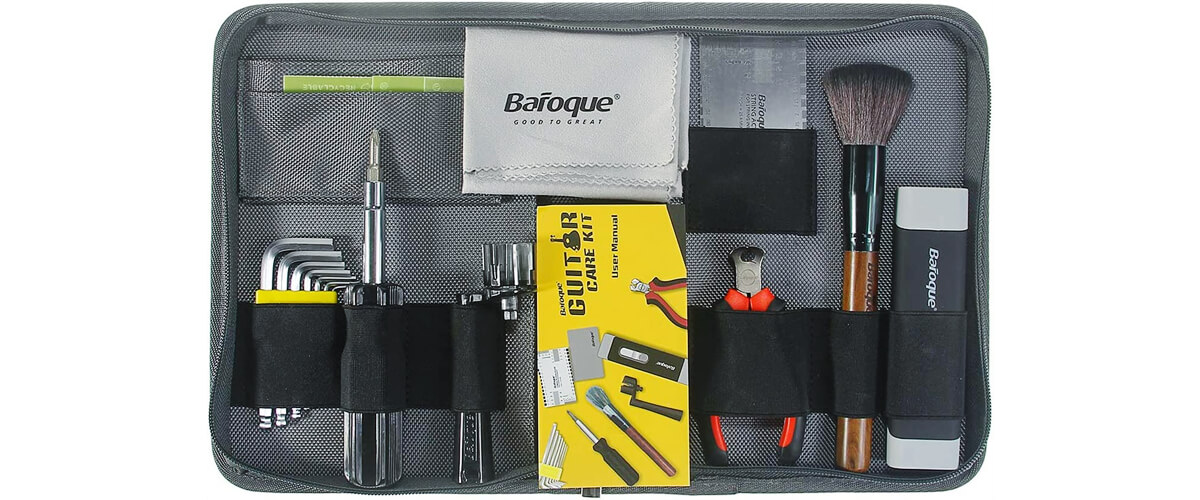
Here are some tips to keep your guitar in good condition as you tour:
- Invest in a quality case. A sturdy, well-padded case or gig bag is essential for protecting your instrument from damage during transportation. Hardshell cases provide the best protection, but heavy-duty gig bags can also be a good option if you’re tight on space.
- Loosen the strings. If you’re traveling by air or subjecting your guitar to significant temperature changes, loosen the strings to reduce tension on the neck and prevent warping.
- Use bubble wrap or foam padding. Add extra protection by wrapping your instrument in bubble wrap or foam padding, especially around the headstock and bridge areas, which are more prone to damage.
- Pack essential tools and supplies. Bring a basic toolkit with items such as a string winder, wire cutters, extra strings, picks, and a tuner to handle any unexpected repairs on the road.
To wrap it up, taking proper electric guitar care is the secret sauce for keeping it sounding and looking awesome, whether you’re jamming at home, rocking out on stage, or hitting the road. Stick to the short- and long-term maintenance tips I mentioned in the article to ensure your instrument stays in excellent condition for years to come.

